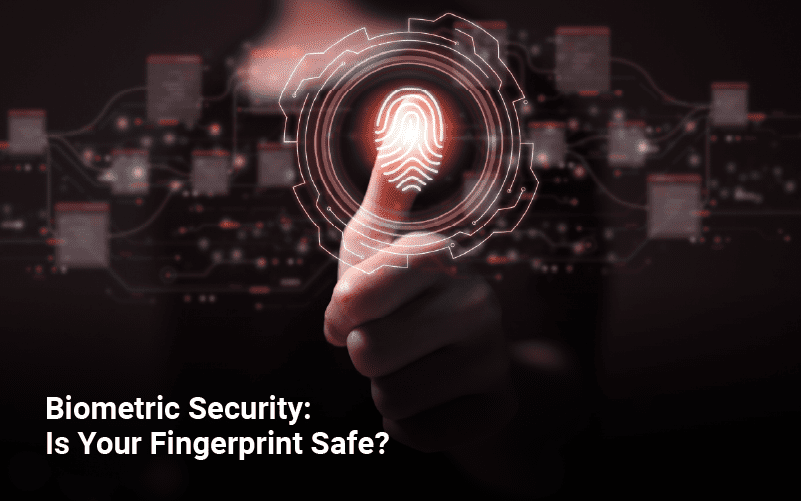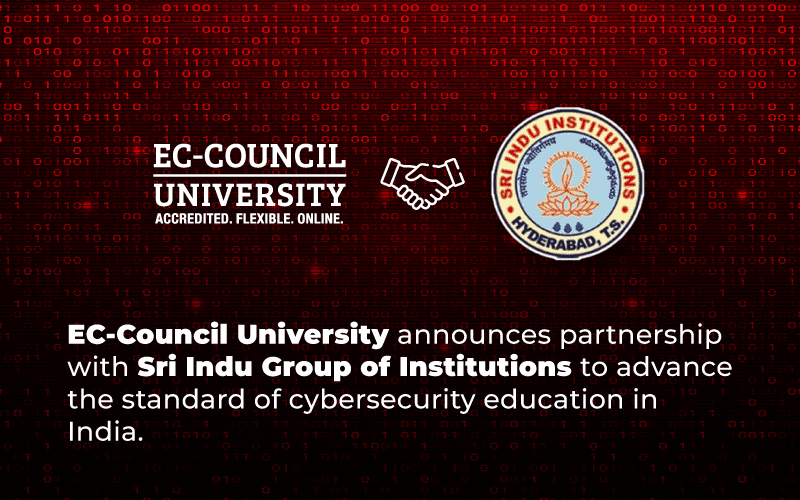Why a Career in Cybersecurity Is the Right Choice for You
October 20, 2022 | Ryan Clancy | ECCU
If you’re looking for a career that’s both in demand and will keep you on your toes, a career in cybersecurity might be the right choice. With the increasing dependence on technology and the growing threat of cybercrime, businesses and governments need cybersecurity experts. So if you’re interested in working in a fast-paced environment, have a knack for problem-solving, and want to make a difference in the world, a career in cybersecurity could be a great fit for you.
Why Is Cybersecurity Important?
Cybersecurity is essential to our lives for many reasons, one being that it helps protect our personal information from the threat of malicious actors. A lot of sensitive data is stored on our computers and devices, from financial information and medical records to photos and personal correspondence. If this data falls into the wrong hands, it can be used for identity theft and other fraudulent purposes.
Cybersecurity also helps protect businesses from attacks that could cause serious damage. A cyberattack can disrupt business operations and lead to the loss of sensitive data or theft of trade secrets. Businesses of all sizes have become targets for cybercriminals, and the cost of a breach can be devastating. For example, the WannaCry ransomware attack in 2017 debilitated the U.K.’s National Health Service and caused billions of dollars in damage worldwide (BBC News, 2017).
How Can Data Breaches Impact a Company?
The most immediate and direct impact of a data breach is often financial. The company may be required to pay for credit monitoring or identity protection services for affected customers, plus damages that may have been incurred. In addition, the company may face legal action if the data breach is due to negligence.
Data breaches can also damage a company’s reputation, causing customers to lose trust. This can lead to a loss of business and customers, as well as an increase in negative publicity. In some cases, data breaches have even led to bankruptcy. As such, it’s clear that data breaches can have a significant and far-reaching impact on a company in the short and long term.
To avoid these negative impacts, companies must take data security seriously and invest in robust systems and processes to protect their data.
Protecting Sensitive Data from Different Types of Cyberattacks
When it comes to safeguarding sensitive data, there are many types of cyberattacks that businesses need to be aware of. Here’s a brief overview of the most common attacks:
- Phishing Attacks: A phishing attack is an attempt by a hacker to trick you into revealing confidential information, such as passwords or credit card numbers. They send emails that appear to be from a legitimate source, such as your bank or another trusted company. The email contains a link that takes you to a fake website that looks identical to the real website. Once you enter your details on the fake website, the hacker will have access to your account.
- SQL Injection Attacks: SQL injection attacks occur when a hacker inserts malicious code into a website’s database. This code allows access to sensitive information, such as customer details or financial data. SQL injection attacks can be particularly damaging if the website maintains credit card numbers or other payment information.
- Denial-of-Service (DoS) Attacks: A DoS attack is an attempt by a hacker to make a website or server unavailable to users. This is usually done by flooding the website with so much traffic that it crashes. DoS attacks can be particularly damaging if the site in question is vital for business operations, such as an online store or bank.
Some of the best ways to protect sensitive data against the attacks mentioned above (and others) are by organizing and classifying it, encrypting it, performing data protection impact assessments, and/or using data masking or obfuscation techniques.
- Organizing and classifying data can help ensure that only the appropriate people have access to sensitive information. Data should be classified according to its level of sensitivity; for example, confidential information should be kept separate from public information.
- Encrypting data is another effective way to protect it against cyberattacks. When data is encrypted, it’s converted into a code that can only be decoded by authorized individuals. This makes it much more difficult for unauthorized individuals to access sensitive information.
- Performing data protection impact assessments (DPIA) can also help organizations identify potential risks to sensitive data and take steps to mitigate those risks. A DPIA is a process that involves identifying, assessing, and managing the risks associated with the processing of personal data.
- Finally, using data masking or obfuscation techniques can help protect sensitive data by making it more difficult for unauthorized individuals to understand or use the information. Data masking involves hiding certain parts of data while still allowing it to be used for legitimate purposes. Data obfuscation involves making data appear to be something other than what it actually is.
Why Is Cybersecurity a Good Career?
Cybersecurity is the practice of protecting networks, devices, and data from malicious attacks. It includes hardware and software technologies, processes, and practices designed to protect against threats (Tunggal, A. T., 2019). As our world becomes increasingly digital, it’s no surprise that a career in cybersecurity is one of the best career fields to get into.
Cybersecurity is a critical area of expertise in high demand across all industries. A career in cybersecurity can offer many benefits, including high salaries, job satisfaction, and the ability to work remotely.
- There are currently more than 500,000 million unfilled cybersecurity positions worldwide. This skills gap presents a great opportunity for those looking to enter the field (Brooks, K. J., 2021).
- Cybersecurity professionals are typically well paid, with salaries far outpacing the average for all occupations. And with the ever-growing importance of cybersecurity, these salaries are only likely to rise in the future.
- In addition to high salaries, many cybersecurity professionals also report high levels of job satisfaction. A recent survey found that 71% of security professionals are satisfied with their jobs (Brathwaite, S., 2022).
- One of the great things about a career in cybersecurity is that many positions can be done remotely. This flexibility can make it easier to balance work and life commitments, and also allows you to work from anywhere in the world.
- To enter the field of cybersecurity, you will typically need at least a bachelor’s degree in computer science or a related field. Many employers also require certification, such as the EECU degrees provided by EC-Council.
Which Cybersecurity Jobs Are in Demand?
There are many types of cybersecurity jobs, but some of the most in-demand positions include information security analysts, network security architects, and security software developers (Awati, R., 2022).
Information security analysts plan and implement security measures to protect an organization’s computer networks and systems. They also monitor networks for security breaches and respond to incidents when they occur. Computer network architects design and build secure computer networks. Computer systems administrators manage and maintain an organization’s computer systems and networks.
What Degree Do I Need?
A bachelor’s degree in cybersecurity is typically the minimum requirement for an entry-level career in cybersecurity. However, many cybersecurity programs now offer master’s degrees, which may be necessary for some advanced positions.
Several types of degrees can prepare you for a career in cybersecurity. Some popular degrees include computer science, information systems, and engineering. These degrees will provide you with the technical skills and knowledge you need to be successful in the field. If you’re looking to get started in a career in cybersecurity, EC Council University’s graduate and undergraduate cybersecurity programs are an excellent place to start and acquire the skills needed for a rewarding career in cybersecurity.
References
Tunggal, A. T. (2022, September 29). Why is cybersecurity important? UpGuard. https://www.upguard.com/blog/cybersecurity-important
Brooks, K. J. (2021, May 21). U.S. has almost 500,000 job openings in cybersecurity. CBS News. https://www.cbsnews.com/news/cybersecurity-job-openings-united-states/
Brathwaite, S. (2021, January). Is cybersecurity a good career? SecurityMadeSimple. https://www.securitymadesimple.org/cybersecurity-blog/is-cybersecurity-a-good-career
BBC News. (2017, December 19). Cyber-attack: US and UK blame North Korea for WannaCry. https://www.bbc.com/news/world-us-canada-42407488
Awati, R. (2022, Aug 22). Top 8 in-demand cybersecurity jobs for 2022 and beyond. TechTarget. https://www.techtarget.com/whatis/feature/5-top-cybersecurity-careers
About the Author
Ryan Clancy is a writer and blogger. With 5+ years of mechanical engineering experience, he’s passionate about all things engineering and tech. He also loves bringing engineering (especially mechanical) down to a level that everyone can understand. Ryan lives in New York City, and writes about everything engineering and tech.








